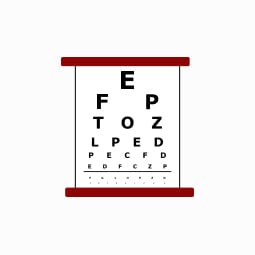Finding Relief For Your Dry Eyes
Dry eye disease is irritating. Your eyes can feel scratchy or gritty and can make your day-to-day uncomfortable. It happens when your eyes lack sufficient lubrication and moisture.
Effects of dry eye can range from minor irritation to risk of corneal inflammation and eye infections.
At Eye on Evanston, we want to maximize your vision and comfort. We offer dry eye therapy designed to meet your unique needs.



What Could Be Causing Your Dry Eye?
If you are experiencing dry eyes, it means your eyes aren’t producing enough tears or your tears are drying up too quickly. This can be caused by a few different factors:
- Age — the majority of people over the age of 65 experience some dry eye symptoms
- Hormonal changes — hormonal changes caused by pregnancy, oral contraceptives, certain medications, and menopause can increase the likelihood of developing dry eye
- Medication — antihistamines, decongestants, blood pressure medication, and antidepressants can decrease tear production
- Medical conditions — rheumatoid arthritis, diabetes, and thyroid conditions can cause dry eye symptoms
- Environmental conditions — the climate you live in, smoke, and wind can increase tear evaporation
- Low blink rate activities — this includes staring at a screen for prolonged periods or reading
- Contact lenses — long term wear can contribute to the symptoms of dry eye
- Refractive eye surgeries — though typically short term, these surgeries can decrease tear production and contribute to dry eye
Symptoms of Dry Eye Disease
Our tears are made of complex elements that are spread throughout the front surface with special blinking mechanics. This keeps our eyes lubricated, protected and healthy.
Interruption in this system can be caused by many factors such as decreased rate of blinking, certain medications, or blocked meibomian glands along our lid margins. The imbalance then results in dry eyes. Symptoms of dry eye disease include:
- Burning, grittiness, foreign body sensation
- Redness
- Excessive watering and tears overflowing onto cheeks
- Contact lens intolerance
Detecting Dry Eye & Maintaining Moisture
Eye redness, irritation, blurred vision, or watery eyes due to lack of moisture could mean you’re experiencing symptoms of dry eye disease.
Dry eyes can be diagnosed during your comprehensive eye exam. Our team will evaluate the quality and quantity of your tears.
We may ask a series of questions about your medical history and lifestyle to determine any external factors that could be causing your dry eyes. Examining the eye, including the lid and cornea, will help us determine the best treatment plan for you.
Our Dry Eye Treatments
Finding moisture in our Alberta climate isn’t always easy, but we have ways to help. Our doctors will work closely with you to help determine the cause of your dry eyes and to develop a customized multi-prong approach to help treat your symptoms.
Eye Drops
If you have moderate to severe dry eyes, preservative-free eye drops from Labitician can help lubricate the surface of your eye to provide long-lasting relief. The drops contain hypotonic hyaluronic acid to effectively reduce symptoms of dry eyes and bring you comfort.
If you have chronic dry eye, prescription eye drops may be a better option. At Eye on Evanston, we can prescribe eye drops suitable for long-term use. Prescription eye drops can treat inflammation, increase tear production, and combat your symptoms.
Eye Mask
If your dry eye is caused by meibomian gland dysfunction (MGD), your eye doctor may recommend the use of a heated eye mask for your dry eyes. MGD occurs when the meibomian glands in your eyelids fail to produce enough oil, or to release enough oil into your tears.
Eye masks can ease the symptoms caused by MGD by heating the the meibomian glands to:
- Improve hydration
- Reduce tear evaporation
- Increase oil production in your tears
- Reduce eyelid inflammation
Omega-3
Adding Omega-3 to your diet is a therapeutic option for dry eye symptoms.
Omega-3 can improve the function in your meibomian glands, which can ease dry eye symptoms by decreasing inflammation, improving hydration, and reducing tear evaporation.
Omega-3 is available in supplements, but can also be introduced into your diet by eating foods like fatty fish, seeds, nuts, and soybeans.
A Solution for You
We understand how uncomfortable dry eyes can be and want to find relief for you!
Coming in for a regular eye exam can help diagnose and treat your symptoms of dry eye. Book an appointment to talk with your optometrist and learn more.
Our Location
We are located in Evanston Plaza, just off Symons Valley Parkway and Evanston Drive. If you have any trouble finding us, give us a call!

Our Address
- #8110 2060 Symons Valley Pkwy NW
- Calgary, AB T3P 0M9
Contact Us
- Phone: (403) 457-9669
- Fax: (403) 457-9668
- Email: info@eyeonevanston.com
- Monday: 10:00 AM – 6:00 PM
- Tuesday: 10:00 AM – 6:00 PM
- Wednesday: 10:00 AM – 6:00 PM
- Thursday: 10:00 AM – 6:00 PM
- Friday: 10:00 AM – 5:00 PM
- Saturday: 10:00 AM – 4:00 PM
- Sunday: Closed

Our Eye Care Services
Our Brands












